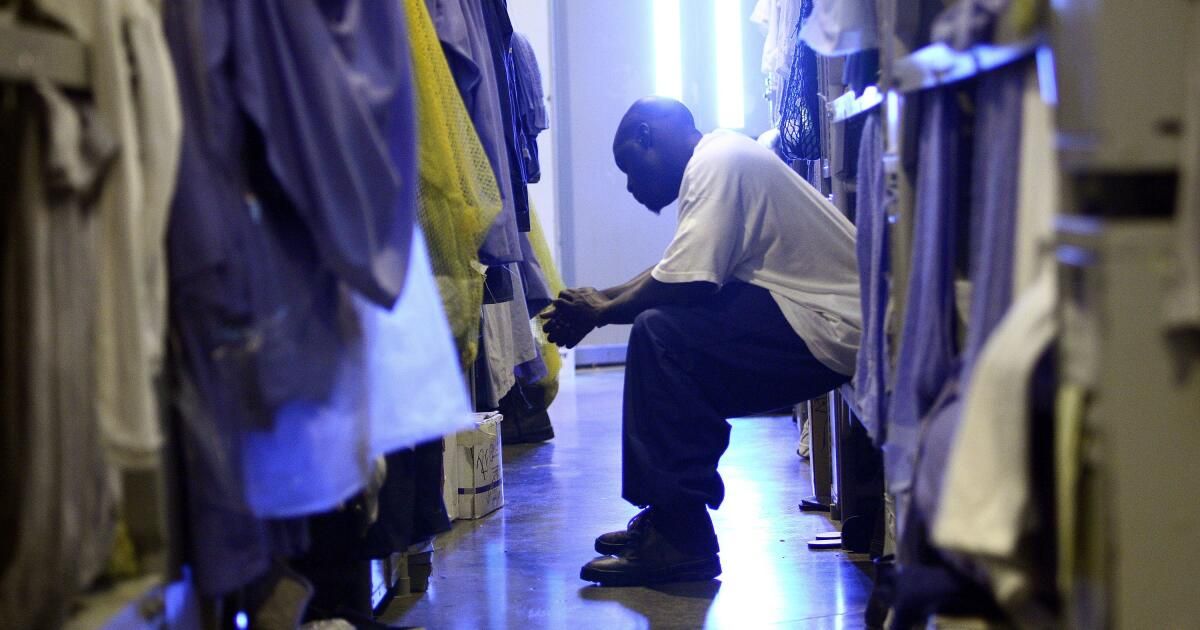California’s crime rate began a historic plunge in the early 1990s and has declined ever since, with the exception of a few small spikes, such as during the COVID-19 pandemic. However, it took more than a decade for legislation to reflect the trend.
Lawmakers continued to pass fear-driven tough-on-crime laws until 2011, based on the misguided public mentality That crime rate was higher than in the recent past. When federal courts threatened to order indiscriminate releases from the state’s unconstitutionally bloated and cruel prison system, California began a decade of criminal justice reform, with lawmakers and voters reversing some of the shockingly excessive punishments adopted over the previous half-century.
Now the debate over crime and punishment has changed course. Republican politicians, by and large, want to end the era of reforms and return to harsher punishments. Democrats are divided between continuing reforms and cutting spending.
That's the backdrop to a heated debate over state Senate Bill 94, a worthy proposal by Sen. Dave Cortese (D-San Jose) to overhaul the sentences of several hundred elderly California prisoners who were sent to prison for life without parole before June 5, 1990, in the pre-reform era.
Life without parole, nonexistent in California until 1978 and rarely used for more than a decade afterward, became standard after ballot measures in the 1990s made sentencing mandatory for some crimes.
More recently, reform laws returned some discretion to judges in sentencing matters.
SB 94 follows a sensible path of recent laws and U.S. Supreme Court decisions that allow parole hearings for most people sentenced to life in prison without parole for crimes they committed as juveniles.
However, it is controversial because it applies to people who committed their crimes as adults and who, unlike their younger counterparts, cannot attribute their criminal actions to underdeveloped brains or a lack of adult judgment. However, it is noteworthy that most of the offenders who would be eligible committed their crimes in their late teens or early 20s.
The law would not directly impose a new sentence or free them, but would create a multi-step process that would allow them to make their case for a new sentence — but only after they have spent at least 25 years in prison. Serial killers, cop killers and sex offenders would not be eligible.
In all other cases, judges would hear the requests and have full discretion to reject them. If a parole hearing is granted and the Board of Parole Hearings deems an offender eligible for parole (because he or she has shown ample evidence of remorse and rehabilitation over decades in prison), the governor could still refuse release.
Most eligible offenders are now in their 60s and 70s, well beyond the age at which violent crimes are committed. For many, more than half a century will have passed between the time they committed their crimes and the time they can apply for a new sentence.
Pragmatism and a measured sense of justice, rather than compassion, are the reasons behind this bill. Few Californians are likely to feel sorry for murderers, no matter how many decades they have spent in prison. But there is increasingly little value in continuing to imprison people for violent crimes they committed long ago, when they were young and stupid.
Elderly people in prison have ongoing costs for housing, food, clothing and medical treatment. And it is valuable to society to limit the number of decades a person can be punished, even for the cruelest acts, after sufficient evidence is presented that there is little risk that parole would endanger society.
Yet in our system, even the most rational sentencing reform is relegated to the back burner by partisan politics. Republicans and Democrats are vying for control of Congress, and their battles over criminal justice measures are being fought with an eye on a handful of House races at stake, as each side uses fear of crime to drive voters to the polls.
That's part of what's at stake in the fight to repeal Proposition 47, which made certain theft and drug offenses that could have been considered felonies in the tough-on-crime era into misdemeanors. And it's part of what's at stake with SB 94.
The bill will fail if it is not approved by the Assembly by Saturday. It would be a shame to allow a safe and cost-effective reform like this to die in such a partisan fight.












